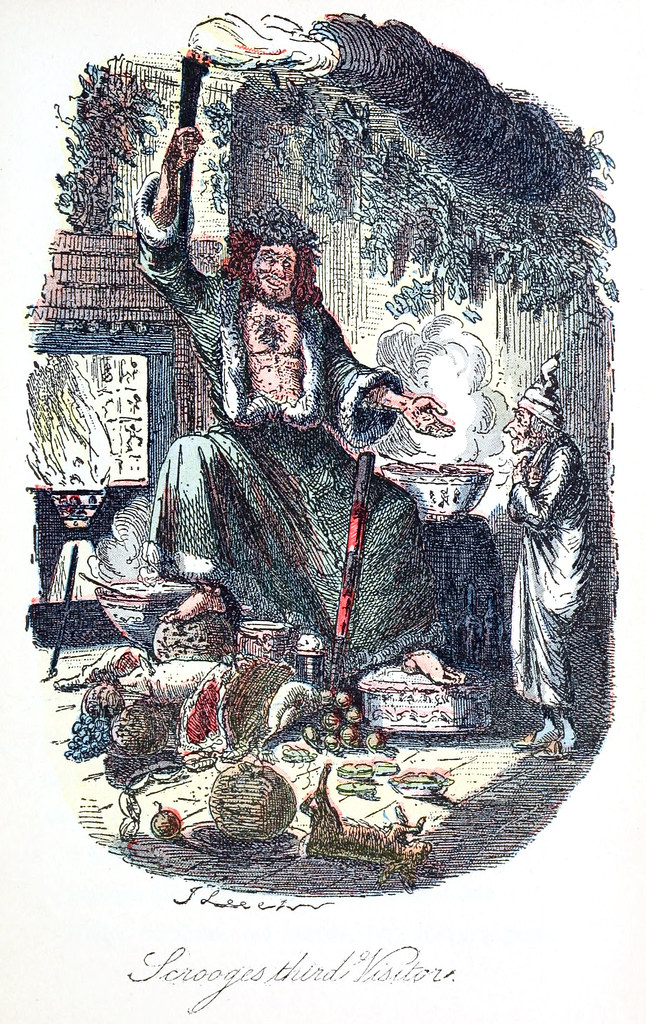In honor of the coming Christmas holiday, I’ve been listening to an audiobook of Charles Dickens’ A Christmas Carol. It’s probably one of the most famous Christmas stories to ever be written, so I won’t recap the story here. Instead, I’d like to take another look at the moral of the story. Because it’s been so long since I read the original book, I figured it wouldn’t hurt to go back to it again and try to see if it provides some new insight. A Christmas Carol helped popularize the idea that Christmas is about the spirit of giving. As cliché as that sounds, it’s a profound message. To truly embody the spirit of the holiday, it’s not enough to order your family members a gift card and store-bought Christmas card and send it to them by the mail. Something more is required.
Embodying the Christmas spirit requires that you exhibit certain virtues with your attitude and actions. A Christmas Carol shows that the particular virtues that define Christmas are liberality and charity. Liberality is the virtue of freely offering and giving what you have to others while charity is the virtue of loving God and neighbor as Jesus taught us. The two are very similar, though there is a subtle difference. As the theologian Thomas Aquinas wrote, liberality is a part of justice.
Liberality belongs to justice because money is meant to be used in a certain way. It’s meant to first provide for oneself and one’s family and then to help the community as a whole. Liberality is all about having a certain attitude towards money, neither hating it so much you waste it nor loving it so much you stockpile it like a miser. Ebenezer Scrooge, the protagonist of A Christmas Carol, begins the novel as the embodiment of miserliness. He displays a puritanical disgust for those who spend their money on anything outside of the bare minimum needed for subsistence, to the point where he hardly uses any of it to heat his office or home. Scrooge calls his nephew Fred “poor” despite the man being comfortably middle class, all because he spends his money on things Scrooge considers wasteful – things like throwing Christmas parties for his friends and family.
The other virtue associated with Christmas is charity – the God-given goodwill for all. In the past, Scrooge’s fear of poverty led him to make an idol out of money. Instead of loving his neighbors as children of God, he weighed each life according to how much money they could give him – the worst of this being when he dismisses the plight of the poor, saying that, if they’d rather die than be sent to the workhouses, “they had better do it, and decrease the surplus population.” This gets thrown back in his face by the Ghost of Christmas Present, who chides him for believing he could judge the worthiness of a life.
Some might defend Scrooge in saying that he doesn’t harm anyone. He’s only being a good capitalist, after all. And everything he did was indeed legal – including his implied underpaying of Bob Cratchit. However, Scrooge was miserable with his lot in life. Everything he does, he does out of a misguided fear of poverty. However, though he’s rich in money, he is poor in happiness. Before being visited by the ghosts, even the simple joys of life are lost to him. Notably, when Fred asks Scrooge why he’s so miserable, he’s unable to answer – presumably because he forgot how to be happy.
Scrooge’s main problem is that he doesn’t spend his money in a way that leads to happiness. Money in itself can never bring true happiness. True happiness can only come from God, and we get a taste of Him by living virtuous lives. God is love, and by showing one’s love for others, one can demonstrate his Godliness.
The story of Ebenezer Scrooge demonstrates the power of God to change the life of a sinner – through the supernatural intervention of the ghosts, he turns over a new leaf. Christmas is all about these new beginnings, brought about through the kindness of God and the kindness of others. That’s why I say with Fred, “God bless it!”

Leave a Reply